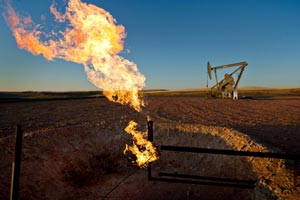Oil Slumps to Lowest This Year as Traders Focus on Record Supply

Oil slumped more than 5% to the lowest close this year after government data showed production cuts from OPEC and other producers have not been enough to reduce U.S. supplies.
Saudi Arabia’s Oil Minister Khalid Al-Falih said in Houston on March 7 that global supplies have been slower to decline than OPEC and its partners expected, leaving the door open for an extension of cuts that started in January.
"The crude market is losing patience," Mike Wittner, head of commodities research at Societe Generale SA in New York, said by telephone. "The big rally in December after the OPEC agreement was based on expectations that the cuts would balance the market. While it looks like OPEC has cut more than 1 million barrels a day of output, it’s difficult to see any impact on U.S. stockpiles."
West Texas Intermediate for April delivery dropped $2.86, or 5.4%, to settle at $50.28 a barrel on the New York Mercantile Exchange, the lowest close since Dec. 7. Brent for May settlement was down $2.89 to $53.03 a barrel at 2:42 p.m. on the London-based ICE Futures Europe exchange.
Saudi Arabia and Russia, the architects of the deal, presented a united front on complying with the cuts at the CERAWeek conference March 7 in Houston. Alongside officials from Iraq and Mexico, they insisted the curbs are working.
Managed money reduced its record wagers on price climbs in data released last week. They held almost 1 billion contracts of WTI and Brent crude futures and options as of Feb. 28, just off a record high, government and exchange data show.
"There’s close to record speculative length and looks like it could be the start of the great exodus," John Kilduff, a partner at Again Capital, a New York-based hedge fund that focuses on energy, said by telephone. "The comments at the conference weren’t reassuring to the market and the crude inventory builds are going to continue for a while given the low utilization rates."
Supplies climbed 8.21 million barrels to the highest in weekly data going back to 1982 as production rose to the highest in a year.




